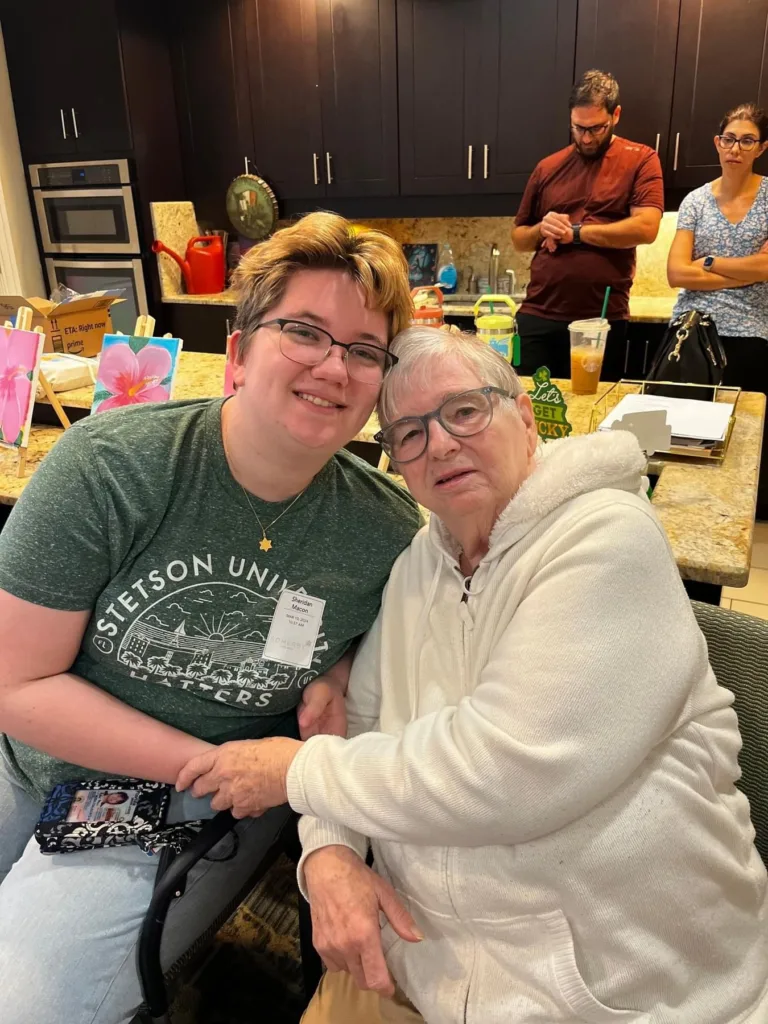On Yom HaShoah, Reflecting on the Family I’ve Lost and Found

I grew up feeling disconnected from my Judaism. I was raised in a household with one Jewish parent, and after my maternal grandfather’s death while I was in elementary school, my family’s engagement with Judaism fizzled away. It wasn’t until I was in my senior year of high school, on the cusp of graduation and adulthood, that I began to think about my future legacy and role in my family. I developed a voracious interest in my family’s history, specifically on my mother’s side. I had heard of the hardships my great-grandparents endured in their early lives, but what did they mean? I started asking questions: Where did my family come from? Why are we here? How did we get here?
That’s when my grandmother told me the story of her own mother’s escape from the Holocaust: the story of a young, pregnant woman who was abandoned by her husband in early 1940s Germany. Scared and alone, she found herself on a boat to Panama, where she eventually married an American man and gained American citizenship. Because of the atrocities committed, we had lost any connection to our family in Germany and were forced to start anew. My grandmother never got to know anything about her biological father as he was believed to have been killed in the Holocaust. An entire generation of my family was lost, and I would never have the chance to meet any other great-grandchildren who would have been my age. There were none to meet.
The story affected me deeply, and ever since then, I’ve been a practicing Jew. I found myself the following year at Stetson University, where I threw myself into a tight-knit, active Hillel community, devouring anything I could about Jewish tradition, history, and philosophy. The relationships I have with my family are some of the most important things in my life, and I grappled with the knowledge that half of my family ceased to exist. By immersing myself in their traditions, their histories, and their philosophies, I felt closer to knowing them in some way. And through Hillel, I have built an extended family that I never dreamed of having — my director and fellow students at our Hillel are cousins I never knew. Their love keeps me strong. Their love keeps me seen. Their love keeps me safe.
On Yom HaShoah, I think about my family, both lost and found. I mourn the family I will never get the chance to know, and connect with the millions of other young Jews who find themselves with similar holes in their hearts and similar gaps in their family trees. But I also reflect on my great-grandmother and the feat she accomplished in her escape from Germany, despite her all-consuming fear and in the face of one of history’s greatest adversities.
Even as six million of her fellow Jews were murdered, she — and every other survivor — had the strength to persevere. They had the hope to believe in the sun even when the world grew dark, to believe in love when they couldn’t feel it, and to believe in God even when he was silent. And because of their strength and hope, we, the descendents of these survivors, are here today. We are able to embrace each other and remember together every year.
In the face of tragedy once again post-October 7, I am reminded of our predecessors. No matter what the Jewish people face — no matter how long it’s been since our people were taken from us, no matter how much hatred and violence we face day to day on our college campuses— we will have strength and hope. We will have each other. The sun will always rise, love will always win, and God will always return.
Sheridan Macon is a first-year English and creative writing student at Stetson University, where he will serve as the Religion and Ritual Chair for Stetson University’s Hillel in the upcoming 2024-2025 academic year.